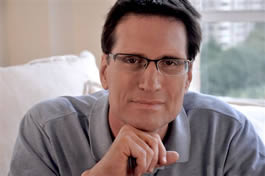A Quote by Elayne Boosler
People are giving birth underwater now. They say it's less traumatic for the baby because it's under water. But it's certainly more traumatic for the other people in the pool.
Related Quotes
I look back and think of all the times I've had to let things go in the past, and how traumatic it seemed while it was happening, but how my understanding of it changed as time passed - and oftentimes things that seem really difficult and traumatic in the short term seem a lot less difficult and traumatic in the long term. So I remind myself of that.
It's not just professional athletes and soldiers who are at risk from traumatic brain injury. More than 1.7 million people a year sustain a traumatic brain injury, and about 50,000 of them die each year, according the Centers for Disease Control. There are both emotional and financial costs from these injuries.
I think the American people recognize is after a decade of war it's time to do some nation building here at home. And what we can now do is free up some resources, to, for example, put Americans back to work, especially our veterans, rebuilding our roads, our bridges, our schools, making sure that, you know, our veterans are getting the care that they need when it comes to post-traumatic stress disorder and traumatic brain injury, making sure that the certifications that they need for good jobs of the future are in place.
I feel like in my life, when I've gone through during some traumatic things, I go so inward and I shut the world out and I become - I don't want to use the word selfish because it's hard circumstances, but when I go through hard stuff, it's difficult for me to communicate with other people, let alone stand up for other people's rights.
As more and more people recognize the level of violence involved and the consequences of CTE [chronic traumatic encephelopathy, a degenerative brain disorder], they're obviously going to say "We don't want this to be a part of culture." And they overlook the fact that there's a huge swath of the populace where physicality is still a real common thing.

































